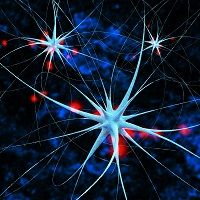Article
Preliminary Target for Novel Multiple Sclerosis Treatment
Author(s):
GM CFS may be an effective novel therapy for multiple sclerosis.

The cytokine granulocyte macrophage colony stimulating factor (GM CSF) likely is involved in multiple sclerosis (MS) progression and development, according to research published in the Journal of Immunology.
Researchers from Thomas Jefferson University in Philadelphia first examined prior studies on the subject, which debated the exact function of GM CSF in MS. They aimed to determine the mechanisms behind the brain inflammation and loss of neurological function that are hallmarks of MS.
“After our animal studies showed that GM CSF was important in the development of an MS like disease, we were excited to see these results confirmed using samples from MS patients in the current study,” study author Abdolmohamad Rostami, MD, PhD, explained in a press release.
The Th 17 cell was identified by MS researchers a number of years ago as a key player in causing the neuronal damage of MS, the statement continued. The Th 17 cells produce cytokine IL 17, hinting to the researchers that IL 17 was essential to MS — even though many studies indicate it is not. The research team published a study in 2011 stating that Th 17 cells also produce GM CSF in mice models. That research demonstrated that in animal models of MS, mice that could not produce GM CFS did not develop MS. However, mice models who lacked IL 17 did develop MS (but it was a mild form of the disease).
The new research aimed to elucidate if the same observations would be true in blood samples from human MS patients who were naïve to any therapies, alongside those who were being treated with INF beta (a commonly used therapy, the researchers noted). The untreated patients had between two and three times as many immune cells producing GM CSF than the INF beta patients or normal non MS subjects that were tested.
In the brains of deceased MS patients, the team found increased numbers of GM CFS producing cells compared to the normal brain (non MS) samples.
“The study demonstrates a new mechanism of action for INF beta therapies,” Rostami continued. “We hope that this research showing GM CFS is an important target will lead us toward therapies that more effectively block the damaging immune reaction in the central nervous system of MS patients.”
The statement added that a recent Phase 1 clinical trial of a GM CFS blocking drug showed early signs of effect — but highlighted the fact that Phase 1 trials are only designed to test the safety of a new drug, not its efficacy. The authors continued that GM CFS treatment is worth pursuing, though, based on the Phase 1 trial and their own research.





